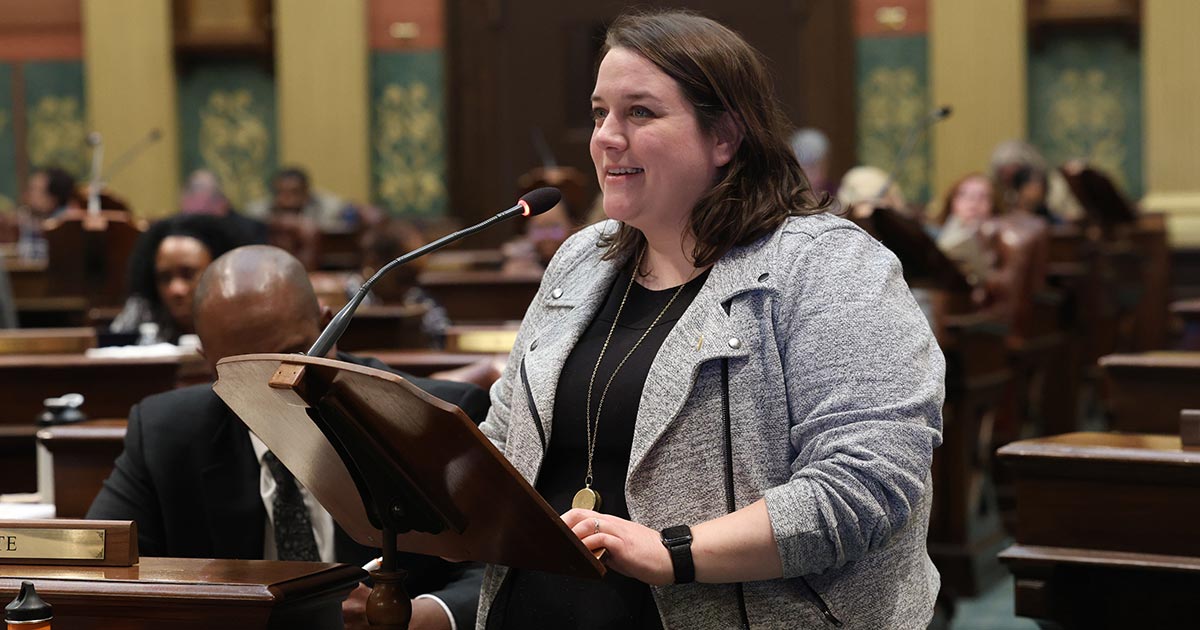LANSING, Mich., May 10, 2023 — The Michigan House of Representatives passed the largest School Aid budget in the state’s history today. It would provide free breakfast and lunch for every student in the state and make a substantial investment in the Great Start Readiness Program to make preschool affordable for every family.
“Kids can’t learn on an empty stomach,” said state Rep. Regina Weiss (D-Oak Park), chair of the Appropriations Subcommittee on School Aid and Education. “Investing in students’ nutrition improves public health, lowers costs for parents, and enhances educational attainment and economic prospects. Free school breakfasts and lunches are a fantastic investment in our people and the future prosperity of our state.”
“I’m proud of the hard work we did for our kids and the future of our state in the Legislature,” said state Rep. Angela Witwer (Delta Township), chair of the House Appropriations Committee. “I know how much families need preschool, and what a struggle it can be to afford it. This budget ensures more equitable support for every child in our state, including support specifically allocated for rural and isolated school districts.”
The budget proposes over $600 million to address the youth mental health crisis and support the MI Kids Back on Track Program to help students make up for pandemic learning loss.
“It’s hard to overstate the impact of the pandemic on young people,” said state Rep. Felicia Brabec (D-Pittsfield), the chair of the Health Policy Subcommittee on Behavioral Health. “Learning loss is just one part of the story. Students also missed the opportunity to develop emotionally and build valuable social skills with their peers. As a mental health professional, I’m pleased that this budget makes the whole student a priority.”
The budget would increase the school operations budget by 6.4% for a total of over $1.5 billion in operational funding. For the first time in Michigan’s history, the state fully funds the special education foundation and programs, and invests over $1 billion for economically disadvantaged students. The House School Aid budget includes $150 million to provide historic first-time funding for school transportation. Additionally, funding is included to address declining enrollment and retirement costs. Over half a billion dollars would go toward improvements to school infrastructure and enhanced school safety.
“We know that we are underfunding schools by $4.5 billion every year,” said Weiss. “We need to work to address long-term school finance reform to ensure we have adequate funding for every student in our state moving forward. For this year, we really tried to prioritize equity and putting money directly into classrooms to have the greatest impact.”
The budget also provides substantial support for educational programs to maintain the state’s economic competitiveness and attract and retain a talented workforce. It would devote funding to support technical and vocational education to prepare students for the jobs of tomorrow and support student teachers to address Michigan’s teacher shortage.
###

